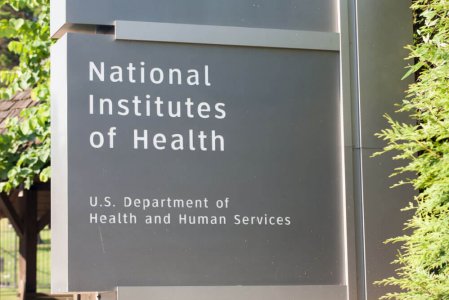The Associated Press published a syndicated article last week profiling a study being done by the NIH on ME/CFS. The article describes well the severity of ME, and the immense challenges our community faces, including lack of treatments, difficulty getting a diagnosis, skeptical doctors and a lack of knowledge about the disease.
While the AP article explains well the dire nature of ME/CFS, the reporter fails to mention how the NIH has played – and continues to play – a central role in perpetuating this health crisis, which has plagued the ME community for nearly 40 years since ME/CFS captured national headlines in the early ’80s.
The reason why we have such thin scientific knowledge about ME, no FDA-approved treatments or biomarker is because the NIH has deliberately chosen not to invest in researching ME/CFS. Neglect by the NIH is one of the key reasons why stigma still has a stranglehold on ME.
And, not much has changed. The NIH’s current annual budget of $14 million for ME/CFS – after two decades of a $5 million annual budget – is not going to move the needle for people living with ME today.
Dr. Walter Koroshtez recent plan for ME/CFS is far too incremental to achieve real change. At the pace of his plan, it will be another two decades before we see actual relief from this crisis. After 40 years of near nothing, we deserve for the NIH to take strategic ACTION now to accelerate research for ME/CFS!
#MEAction has written the following letter to the AP journalist to explain the larger story at play.
We will continue to fight for the NIH to take urgent, strategic ACTIONS to bring real change to the ME community in our lifetimes. Join our #NotEnough4ME Campaign.
Letter to AP Reporter
Dear Ms. Neergaard,
Thank you for your article, “Patients push limits for clues to chronic fatigue syndrome.”
It is wonderful to see Zach be able to join a research study at the NIH in search of answers, and for ME/CFS to gain national press attention.
Unfortunately, your reporting on the NIH’s research into ME/CFS completely missed the larger story that the crisis raging around ME/CFS for nearly 40 years is a direct result of the NIH’s persistent neglect of the disease.
In the nearly 40 years since outbreaks of ME/CFS gained national attention, the NIH has invested scarce resources into researching this disease. I’d love to chat with you about the full scope of the NIH’s failure to address this crisis, and what that has meant for the community, but the bottom line is that research funding for ME/CFS is absurdly deficient.
For the past 20 years, the NIH has funded ME at an average of $5 million per year, which increased to $14 million two years ago. Considering the prevalence and severity of the disease, NIH research for ME/CFS should be at $188 million annually, which is commensurate with diseases of similar burden. If you add up all the funding that the NIH has allocated to ME/CFS research over the past two decades, it wouldn’t reach the total amount that the NIH should be spending on the disease in one year.
The absence of research and knowledge about ME/CFS has allowed stigma to maintain a stranglehold on the disease, contributing to confusion, apathy and misinformation around the disease, leading to a complete lack of support for people with ME/CFS from doctors or social services. (After nearly 40 years, we still do not have one, single test that identifies ME exclusively or any FDA-approved treatments.)
This past fall, the NANDS Council Working Group overseen by Dr. Walter Koroshetz, released a plan for addressing ME/CFS. While the plan acknowledged many of the critical issues facing the disease (which several previous plans have also identified), the strategies for solving the problems impeding ME/CFS research are far from adequate. It’s more talk and delayed action.
In response, our patient organization, #MEAction, has launched a campaign calling for the NIH and Dr. Koroshetz to take specific actions in an urgent manner to get us out of this four decade-long quagmire. (Read more about the campaign.)
This is a lot of information to process, but the article you wrote about the NIH and ME/CFS is, unfortunately, a publicity piece for the NIH and does not explain the key role the NIH has had in creating this crisis.
I’d love to talk to you further, and put you in touch with ME/CFS researchers and members of the community about the full extent of the ME/CFS crisis for a follow-up article or editorial (either written by one of your staff members or one of our community members).
Also, here are a few articles that delve into the full story for your reference: Atlantic, Stat News and CNN.
I look forward to speaking with you further.
Kind regards,
Adriane Tillman
#MEAction Editor





